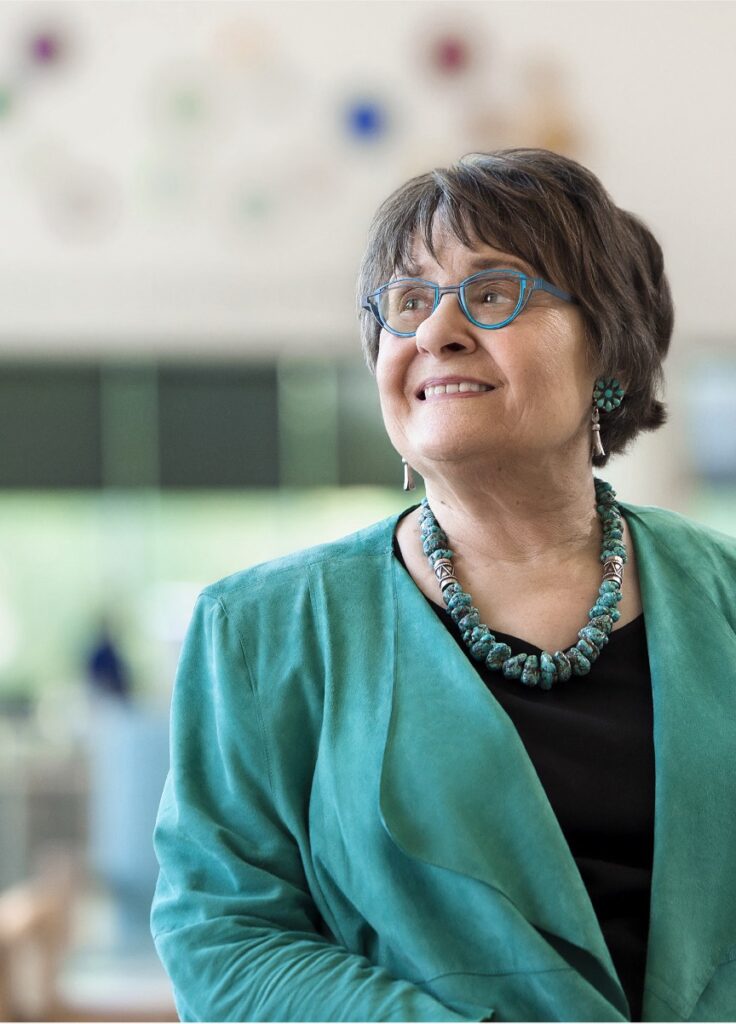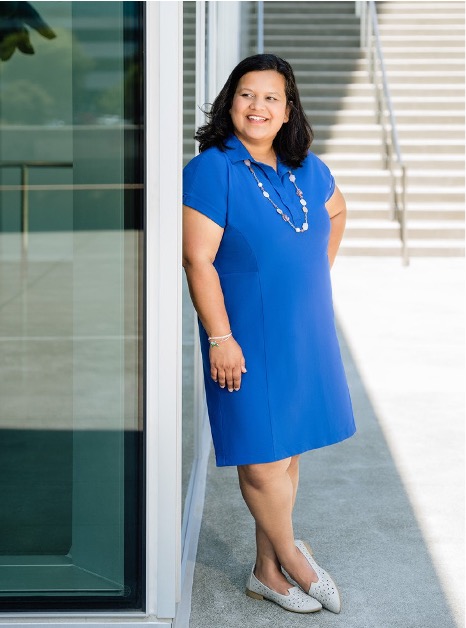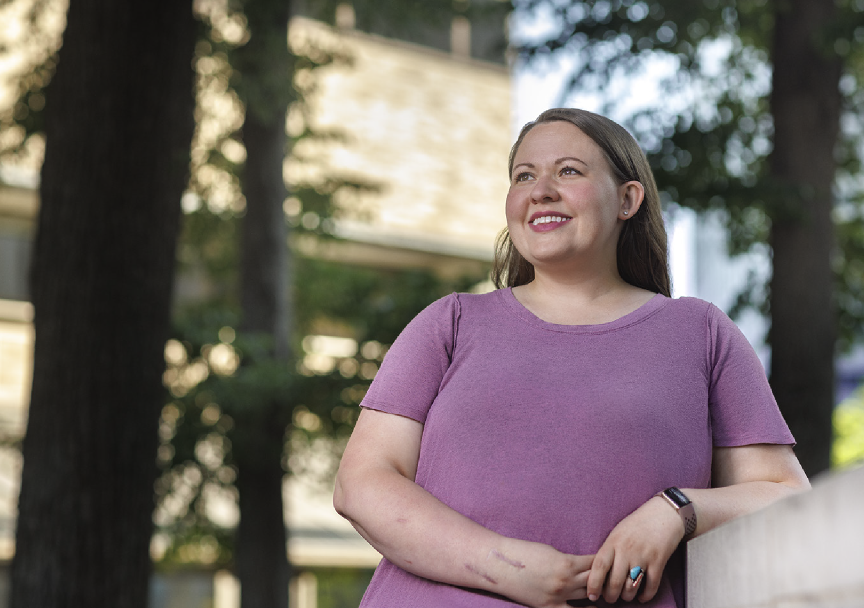A family legacy: The history behind the Wilbur T. and Grace C. Pobanz Predoctoral Fellowship
Predoctoral students benefit from the generosity of Wilbur and Grace Pobanz — and the friendship of Wilbur and Grace’s daughter, Sandy
At the age of 34, Wilbur Pobanz had been in and out of hospitals for two years, with doctors unable to reach a concrete diagnosis to explain what was making his heart race. His wife, Grace, was supporting the family on $7 a week until she nearly died due to complications from an ectopic pregnancy.
Following this crisis, Wilbur’s local physician referred him to Mayo Clinic in Rochester, Minnesota. Despite their limited resources, the couple made their way from Illinois to Minnesota in 1942, where Wilbur was diagnosed with acute tachycardia and finally received proper treatment for this potentially fatal condition.
Their daughter, Sandra (Sandy) Pobanz, has her father’s original Mayo registration envelope and handwritten $75 receipt for a complete physical. Sandy plans to donate these documents to the Mayo archives.
Years later, the grateful couple would leave an estate gift to support the clinic that saved Wilbur’s life. Their legacy lives on as the Wilbur T. and Grace C. Pobanz Predoctoral Fellowship fund for students at Mayo Clinic Graduate School of Biomedical Sciences.
“Mayo Clinic’s standards are high. That’s why I know my money and my parents’ money will be used in the way we designated, and will be administered efficiently, honestly and appropriately.”
– Sandy Pobanz
GENEROSITY THROUGH GENERATIONS
After Wilbur’s treatment, life began to improve for the couple, in terms of health and finances. In the 1940s and ’50s, Wilbur and Grace owned and operated Pobanz Feed & Service in Osco, Illinois — selling cattle, hog and chicken feed and overhauling cars and trucks. In 1954, Wilbur joined Kent Feeds as territory manager. He was promoted to district manager in 1955. The Kent Feeds Board of Directors appointed Wilbur to vice president of Kent Sales, eastern division, in 1968. Grace was always his greatest source of help and moral support.
Wilbur was listed in “Who’s Who in the Midwest” in the 1972–1973 edition, quoted as follows: “Purebred livestock breeder; owner Pobanz Truck Line 1931–1943; owner Pobanz Feed & Service 1943–1953; with Kent Feeds, Inc. Muscatine, IA beginning 1954.”
The couple never lost sight of their Mayo Clinic experience. Sandy says that her parents credited Mayo Clinic with restoring her father’s health.
Sandy, a retired civilian financial budget manager for the U.S. Army, devoted her time to caring for her parents in their later years and accompanying them to appointments at Mayo Clinic. Grace lived to be 85, and Wilbur 95. It was during these later experiences that the couple decided to will an estate gift to Mayo Clinic. Sandy had extensive conversations with Mayo Clinic’s Department of Development to decide how to use the funds, which is how she learned about Mayo Clinic Graduate School of Biomedical Sciences. In 2004, Sandy established a scholarship fund for fellows in the school.
However, the fund turned out to be just the start of Sandy’s involvement with Mayo Clinic and the Pobanz fellows.
Not only does Sandy keep in regular contact with the Pobanz fellows, but she has also attended their symposiums and visited their labs to see their research first- hand — experiences that she says have “opened a whole new world for me that I didn’t even know existed.” She has even attended important life events of the fellows, such as graduations and a wedding party.
Sandy relocated from Moline, Illinois, to Scottsdale, Arizona, in 2010 with several goals: To get Mayo medical care, volunteer at Mayo Clinic, and get her Golden Retrievers, Benji and Teddy, trained to be Mayo therapy dogs — all of which were realized.
Since then, Sandy has volunteered with her dogs in various capacities, such as with children being treated for cancer, and has added a Labrador Retriever, Will, to her team.
“I get the biggest thrill walking into Mayo with my therapy dog in his vest, swiping my badge over the access keypad and walking through those doors as part of the Mayo team,” Sandy says.
Because Sandy has been so impressed by Mayo Clinic and the impact of the Wilbur T. and Grace C. Pobanz Predoctoral Fellowship fund, she will also be dedicating an estate gift to Mayo Clinic to continue support of Mayo Clinic Graduate School of Biomedical Sciences and its fellows.
“Mayo Clinic’s standards are high. That’s why I know my money and my parents’ money will be used in the way we designated, and will be administered efficiently, honestly and appropriately,” Sandy says.
WORDS FROM THE POBANZ FELLOWS
Since the implementation of the Wilbur T. and Grace C. Pobanz Predoctoral Fellowship fund in 2004, there have been five recipients. One is a current fellow, while four have already graduated and gone on to establish prolific, impactful scientific careers. The fellows are:
- Rebecca Schmidt, Ph.D. (CBG ’09) (2005–2009)
- Justin Peters, Ph.D. (BMB ’13, BIOC ’15) (2009–2013)
- Poorval Joshi, Ph.D. (MPET ’16) (2013–2016)
- Paul Belmonte, Ph.D. (IMM ’20) (2016–2020)
- Brooke Tader (BMB ’25) (2020–present)
REBECCA SCHMIDT, PH.D.
“We had a blast, and I looked forward to Sandy’s visits during the rest of my time at Mayo.”
– Rebecca Schmidt, Ph.D.
Inaugural fellowship recipient Rebecca Schmidt, Ph.D., used the fellowship funds for her annual trip to a national conference. The conference is essential in helping students share their work, learn from top presenters in their field, and network with other scientists to help grow ideas and collaborations.
In addition, Dr. Schmidt also developed a close friendship with Sandy Pobanz. The pair first met for lunch shortly after Dr. Schmidt received her fellowship acceptance letter and the two hit it off — speaking about Dr. Schmidt’s research and future goals.
Dr. Schmidt also gave Sandy a tour of her lab and invited Sandy to view her research poster, which displayed the name of the fellowship.
“She was so moved to see her family mentioned along with our research!” says Dr. Schmidt. “We had a blast, and I looked forward to Sandy’s visits during the rest of my time at Mayo.”
Dr. Schmidt is now an associate professor of biology at Colorado Mountain College, a federally designated Hispanic-Serving Institution with a student body that is over 25% Latino. She also serves as the chair of the Department of Biological Sciences and continues to keep in close contact with Sandy.
JUSTIN PETERS, PH.D.
“Sandy is totally invested in her support of Mayo Clinic and each of the Pobanz fellows. She is truly a generous, thoughtful and caring friend.”
– Justin Peters, Ph.D.
Justin Peters, Ph.D., remembers his time at Mayo Clinic fondly. It offered him a wealth of opportunities, he says, such as presenting at national and international conferences, preparing manuscripts for publication in various journals, and serving as a representative for the graduate school on the Mayo Clinic Alumni Association (MCAA) Board of Directors.
“My training at Mayo was filled with valuable educational experiences for my personal and professional growth and enrichment as a researcher,” Dr. Peters says. “I have fond memories of that time as I progressed both academically and intellectually, contributing to my development as a scientist, researcher and educator.”
Dr. Peters also credits his success to the support of both the Pobanz fellowship and Sandy Pobanz. He speaks fondly of Sandy’s involvement in his studies and personal life, from attending his commencement ceremony to inviting him to stay with her in Scottsdale where he saw her therapy dogs in action.
“Sandy is totally invested in her support of Mayo Clinic and each of the Pobanz fellows,” Dr. Peters says. “She is truly a generous, thoughtful and caring friend.”
Dr. Peters’ career has led him to the Department of Chemistry and Biochemistry at the University of Northern Iowa (UNI) in Cedar Falls, Iowa, where he serves as associate professor of biochemistry.
POORVAL JOSHI, PH.D.
“I want to express a tremendous amount of gratitude to the Pobanz family for the support they provided at a crucial time in my scientific career. It afforded me the freedom to pursue the research topics that I loved.”
– Poorval Joshi, Ph.D.
As an international student, Poorval Joshi, Ph.D., was not eligible to apply for many predoctoral fellowships. Once awarded the Pobanz fellowship, Dr. Joshi wrote a letter to Sandy detailing how the fellowship would support her annual stipend, travel to professional meetings and professional development activities. The Pobanz fellowship affirmed the value of her research and provided forward momentum in her career progression, Dr. Joshi says.
The funds allowed Dr. Joshi to showcase her Ph.D. thesis research work at the prestigious Biennial Ovarian Cancer Research Symposium in 2014 and proved instrumental in securing a postdoctoral fellowship at Yale University as her next career step in 2016.
“I want to express a tremendous amount of gratitude to the Pobanz family for the support they provided at a crucial time in my scientific career. It afforded me the freedom to pursue the research topics that I loved,” Dr. Joshi says. “I whole-heartedly credit the high quality of my training made possible by Mayo Clinic and the Pobanz fellowship in shaping my career so that today I can help lead important discovery studies as a senior scientist at Freenome to develop a blood-based test for early detection of colorectal cancer.”
PAUL BELMONTE, PH.D.
“The Pobanz fellowship is so much more than words you can put on your CV. It’s a family, and Sandy makes sure of that!”
– Paul Belmonte, Ph.D.
Paul Belmonte, Ph.D., considers his time at Mayo Clinic to be one of the most influential periods of his life — and he says the Pobanz fellowship played a significant role in that experience.
‘The Pobanz fellowship is an integral part of this community. It connects talented students, scientists and, of course, the amazing Sandy herself,” Dr. Belmonte says.
Like the fellows before him, Dr. Belmonte was able to travel with the help of the fellowship, creating opportunities to present his research and collaborate with those in his field of study. However, Dr. Belmonte emphasizes the intangible benefits of the fellowship.
“The Pobanz fellowship is so much more than words you can put on your CV. It’s a family, and Sandy makes sure of that!” Dr. Belmonte says. “That’s what I love and appreciate about it most. Yes, we’re scientists, but we’re also humans that, like everyone else on the planet, have triumphs, struggles and diverse perspectives. The Pobanz fellowship recognizes that and celebrates that.”
Since his time at Mayo Clinic, Dr. Belmonte has devoted his scientific focus to improving the lives of those living with type 1 diabetes (T1D) — a chronic autoimmune disease that he lives with. He works at a nonprofit called the Critical Path Institute (C-Path) as the scientific director for its T1D consortium. The organization brings together people from academia, industry, nonprofits and government to facilitate regulatory pathways that accelerate the development of therapies for people with unmet medical needs.
BROOKE TADER
“The Pobanz fellowship has helped me to garner a new and unexpected connection with Ms. Sandra Pobanz, who has been a source of encouragement to me during my time in graduate school.”
– Brooke Tader
Brooke Tader is the fifth and current Pobanz fellow. She has called her experience as a Mayo Clinic graduate student eye-opening as she learns more about the breadth and depth of scientific research. Brooke studies aspects of gene expression regulation in pancreatic ductal adeno- carcinoma (PDAC). Brooke hopes to advance the understanding of PDAC, which currently has a five-year survival rate of about 13% and may become the second leading cause of cancer deaths by 2040. Brooke appreciates the support of both the Pobanz fellowship and Sandy Pobanz.
“The Pobanz fellowship has helped me to garner a new and unexpected connection with Ms. Sandra Pobanz, who has been a source of encouragement to me during my time in graduate school,” Brooke says. “She has celebrated not only my graduate school wins but has also celebrated life experiences with me.”
This story appears in the latest issue of Mayo Clinic Alumni magazine. You can read or download a PDF of the issue here.
Mayo Clinic alumni are entitled to the print version of the quarterly magazine. If you’re not receiving the magazine, register or log in to your online MCAA profile to make sure your address is correctly entered. Or contact the Alumni Association at mayoalumni@mayo.edu or 507-284-2317 for help.
Not sure if you’re an alum? If you’ve worked or studied at Mayo Clinic, you might be surprised. Learn more here.





